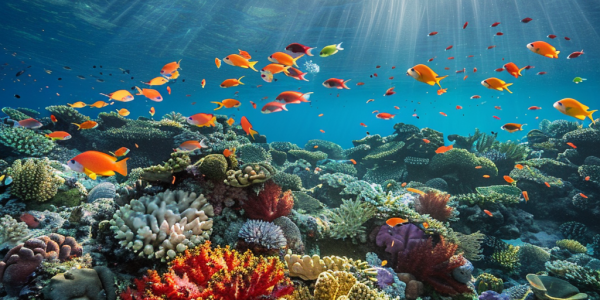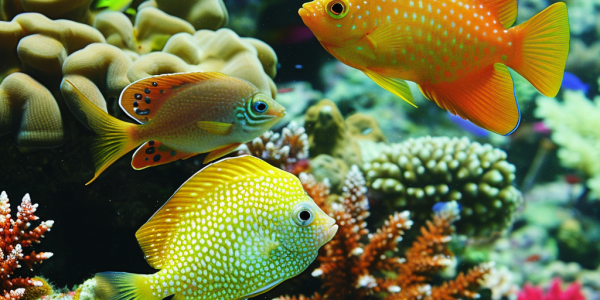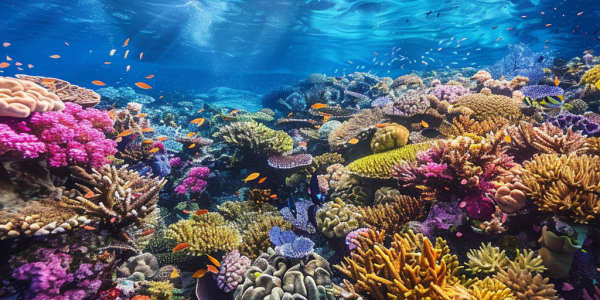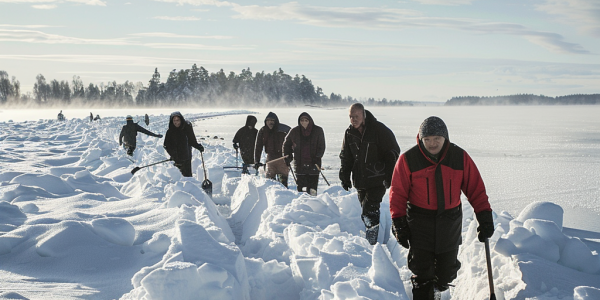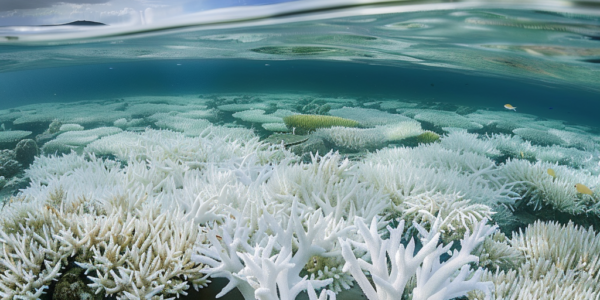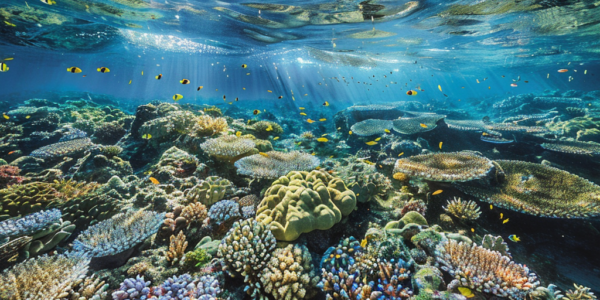Multivitamins Show Promise in Coral Reef Conservation
A groundbreaking study reveals that multivitamins may significantly enhance coral reef health and resilience against climate change. Conducted by experts from WHOI and the University of the Virgin Islands, research shows that essential nutrients like manganese and zinc can bolster coral strength, offering new hope for the conservation of these vital marine ecosystems. As coral reefs face threats from rising ocean temperatures and pollution, this innovative approach could pave the way for effective strategies in marine conservation.
Ocean Warming Impact on Fish Size Reductions Revealed
Recent research has revealed the impacts of ocean warming on fish size reductions in coral reefs, with fish found to be 14-40% smaller in regions with high temperatures. The study challenges traditional theories and suggests that a mismatch between energy acquisition and demand is the primary driver of size reductions in fish under elevated temperatures.
Australia’s Coral Reef Under Threat from Coral Bleaching
Learn about the existential threat facing Australia’s Coral Reef due to coral bleaching. Renowned photographer Cristina Mittermeier is working with scientists to restore degraded reefs and identify resilient ‘super corals.’ Dr. Emma Camp’s research on these super corals offers hope for the preservation of vital marine ecosystems like the Great Barrier Reef.
Volunteers Build Artificial Snowdrifts to Protect Endangered Seal Pups
Discover how volunteers in Finland are protecting endangered Saimaa ringed seals from the impacts of climate change by building artificial snowdrifts along Lake Saimaa. Led by hydrobiologist Jari Ilmonen, these dedicated individuals are creating essential shelters for seal pups in a changing environment. Learn how these innovative conservation efforts have helped the seal population rebound and provide hope for the future of this fragile ecosystem.
The Black Summer of Our Oceans
Learn about the devastating impact of mass coral bleaching events and marine heatwaves on Australia’s east coast waters, reminiscent of the Black Summer bushfires. Urgent action is needed to address the escalating crisis facing our oceans and the impact of climate change on marine ecosystems.
Restored Coral Reefs Can Grow as Fast as Healthy Ones, New Research Shows
New research reveals that restored coral reefs can grow as fast as healthy ones, providing similar habitats for marine life and protecting adjacent islands from coastal erosion. The study found that coral cover, colony sizes, and carbonate production rates tripled following coral transplantation and were indistinguishable from nearby healthy reefs in all investigated parameters after just four years. This research shows that active management actions can help boost the resilience of specific reefs and bring back important functions critical for marine life and local communities.

